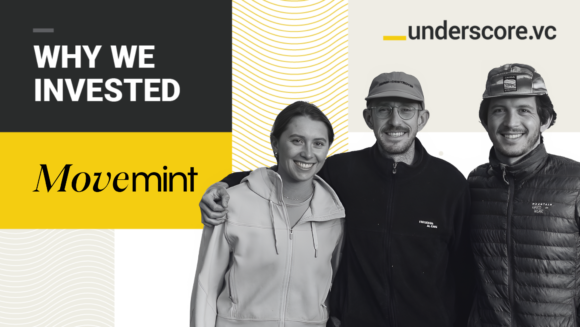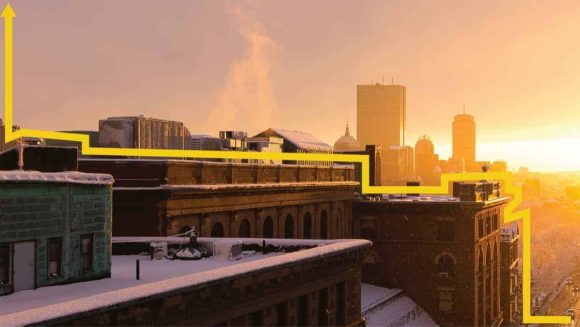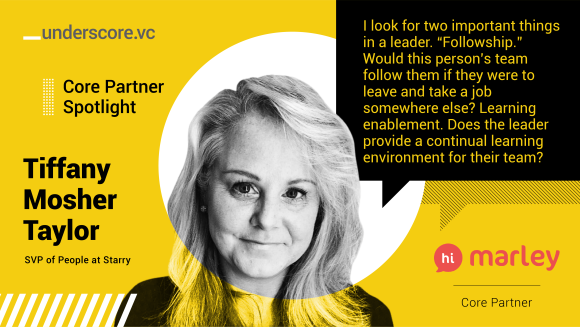These founders are streamlining collaboration for electrical engineers.
Our new blog series, “Preparing for Lift-Off: 11 Founders Launching Bold New Startups,” features exclusive interviews with the founders from the latest cohort of our UFirst Summer Accelerator program. We’re sharing their stories and the daring ideas that are moving their companies forward. We’re excited to be working with them this summer, and hope you enjoy hearing about their journeys thus far and where they’re headed.
This week, meet Valentina Toll Villagra and Kyle Dumont, two founders who are enabling electrical engineers in the hardware design space to collaborate seamlessly with their new platform, AllSpice.

Upon meeting at Harvard, Kyle and Valentina — both engineers themselves — quickly realized that they had been observing the same problem for years: unlike software developers, electrical engineers and hardware designers had no easy way to collaborate on projects. They set out to work and soon they had crafted a promising platform for engineers across the globe.
This is part 8 of 11 in our “Preparing for Lift-Off: 11 Founders Launching Bold New Startups” series created in partnership with growth marketing agency Ideometry. Tune in each week for another installment! Check out Part 7 with Brittany Greenfield of Wabbi.
Watch AllSpice pitch at the 2019 UFirst Demo Day Above!
Tell us a bit about AllSpice.
Kyle: AllSpice is an electrical engineering collaboration toolkit. It’s a B2B product for engineering teams that helps get hardware designs to market faster. What we are trying to do is bring some of the concepts of git and CI/CD (continuous integration and continuous deployment) development from the software world and turn it into a product that design teams can use as well.
Valentina: When you think of GitHub, GitLab and other continuous integration tools—it’s the same kind of process we are trying to bring to hardware.
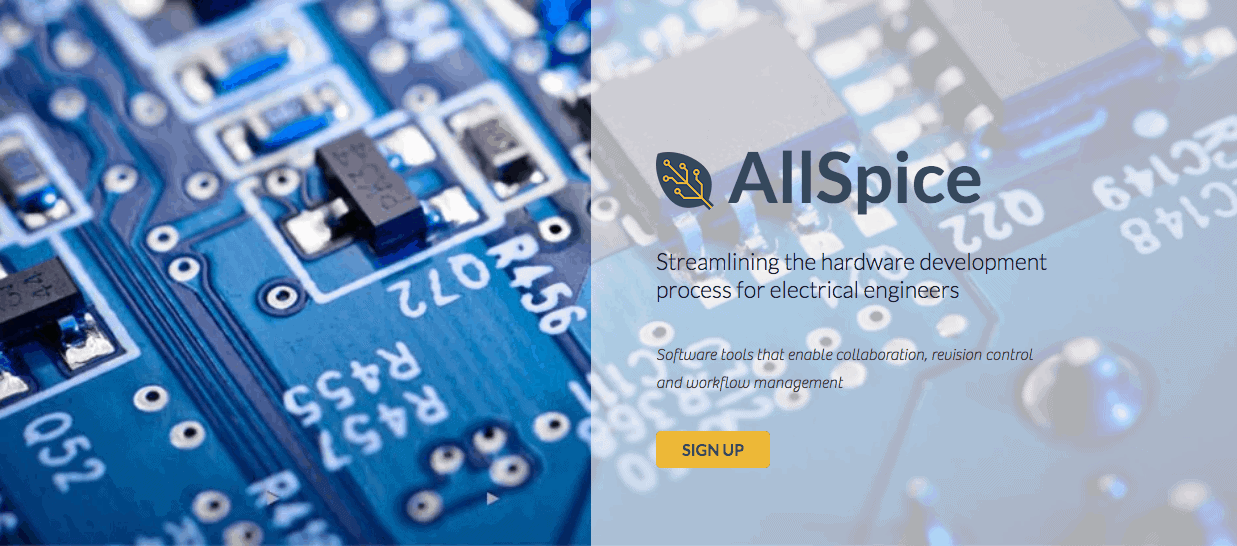
How did you come to work together? And how did you come up with the idea?
Valentina: We are both dual-degree students at Harvard, earning an MBA and a Masters in Engineering Science. We met last summer in our first class and started to brainstorm about this space.
Kyle: I’ve been doing electrical engineering design for about 7 years and I’ve found that it is incredibly difficult to collaborate, share files, and work on projects as a team. I first recognized the problem a few years ago when I was working at a startup. I was building an electrical engineering team and we didn’t have a way to work out of a centralized space. I asked around and nobody was happy with the current solutions.
Valentina: I worked at Amazon for the last two years and was managing a program for an internal software productivity tool. I was really interested in the power of digital collaboration to make teams more efficient. I kept noticing teams that had deployed tool site kits to help them collaborate, and they worked better over time in comparison to other teams.
Why is this specifically for electrical engineers? What is it about that field that needs this service and support?
Valentina: Electrical engineering has been an over-looked industry in the past, and there has been a lot of focus on software growth. But we haven’t seen the same development in hardware despite all software running on some hardware device. There have been all these cool creations for software and you can see the massive power of it. With AllSpice, we are trying to enable that rapid development for the hardware space.
Kyle: There’s a feeling that hardware is less important than software. And it’s far from it – it’s a multi-trillion dollar industry. Think of the Samsung battery fires from a couple of years ago – that exemplified an issue with hardware assembly. These things really impact consumers and companies.
How do you see collaboration and workflows in the EE/hardware industry changing over the next few years? What are the main drivers behind these shifts?
Kyle: One is that manufacturing times are increasing. Automated manufacturing is enabling a quicker cycle time, which means you have to be organized and able to design faster. There’s also the move to distributed teams. Most companies have teams in China or far east so you are working across oceans and timezones. As a result, the digital infrastructure becomes that much more important.
What does the world look like when AllSpice succeeds?
Valentina: In an ideal world, hardware designers and engineers will spend 100% of their time on creativity. They can remove all the barriers that exist—tracking information, preventing information gaps, or dealing with trivial design flaws. AllSpice will take all of that out of the equation and engineers will spend all of their time developing new products.
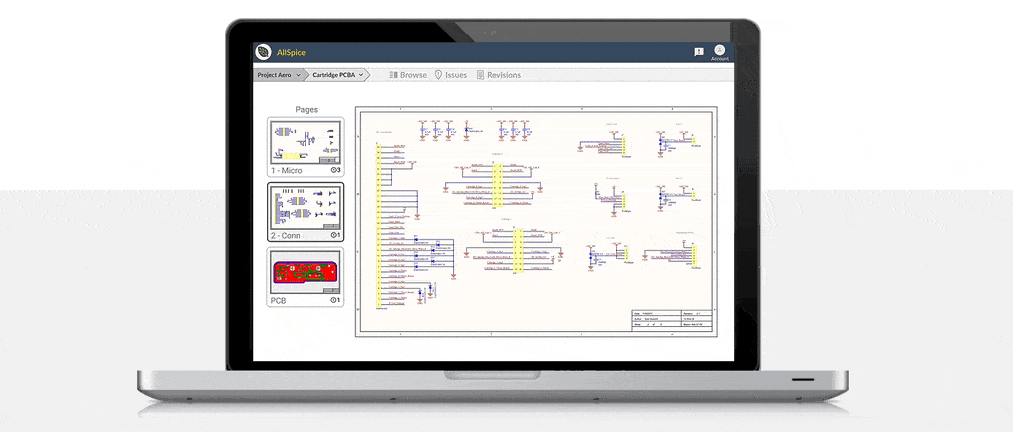
What drew you to UFirst? What are you hoping to get out of it?
Valentina: The people. We met the Underscore team and immediately felt it was a good fit—they invest in companies, they work in the space, they know the scene, and they have an incredible community of industry experts. They were willing to meet us where we were, which was at a very early stage, and help us grow.
Kyle: We have a lot of technical milestones for the summer. We want to be out in the field and making some industry partnerships. We really just want to get connected with the ecosystems, especially around Boston, where there is a huge robotics industry.
Being an entrepreneur, what are some of the biggest challenges you’ve faced along the way?
Valentina: For me, the biggest questions are around the sequence of things. We get a lot of great advice and insight, but it is hard to tell what matters the most and should be prioritized first.
Starting a business is no easy task. What is the driving force that gets you out of bed every day and motivates you to build your business? What helps you stay focused?
Kyle: Talking to users and customers. Hearing repeatedly that our product is positioned to solve a painful problem for them. We’re excited about creating a more efficient solution and we know that the way to achieve that is by listening to what customers are experiencing and growing with them.
What is your advice to first-time/aspiring founders?
Valentina: Go for it. There’s no perfect time. You can always be better prepared and you can always have more information, but being able to deal with uncertainty is a big part of being an entrepreneur. You have to have enough information and be confident enough, but also not wait for the exact ‘perfect’ time because you can’t be sure that’s ever going to happen.
''Go for it. There's no perfect time. You can always be better prepared and you can always have more information, but being able to deal with uncertainty is a big part of being an entrepreneur'' - Valentina Toll-Villagra, UFirst Fellow Click To Tweet
Ideometry is a Boston-based full-service marketing agency serving a global client base. With a full suite of creative, development, and strategic services, Ideometry helps startups and Fortune 500 companies alike get the business results they’re looking for. If you’re doing something interesting, we’d love to hear from you. Get in touch with us at ideometry.com or email hello@ideometry.com

